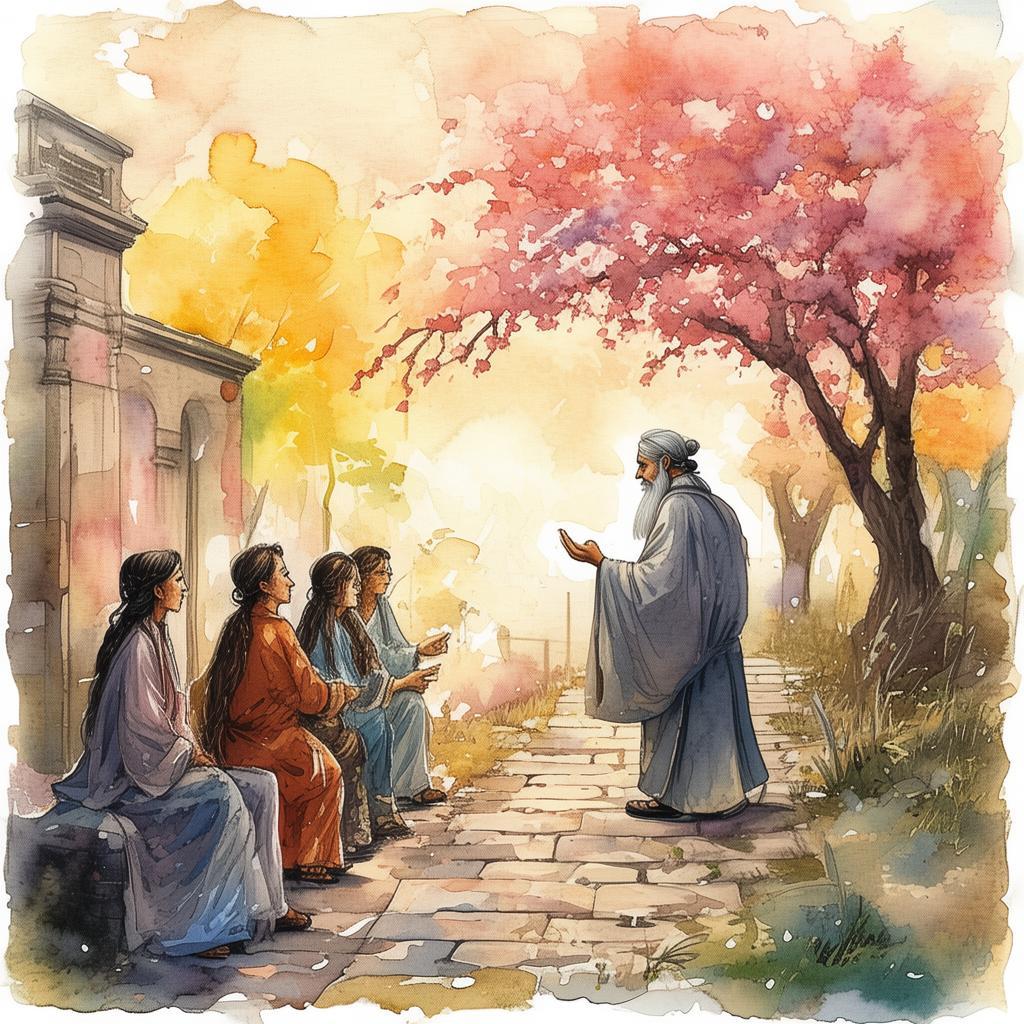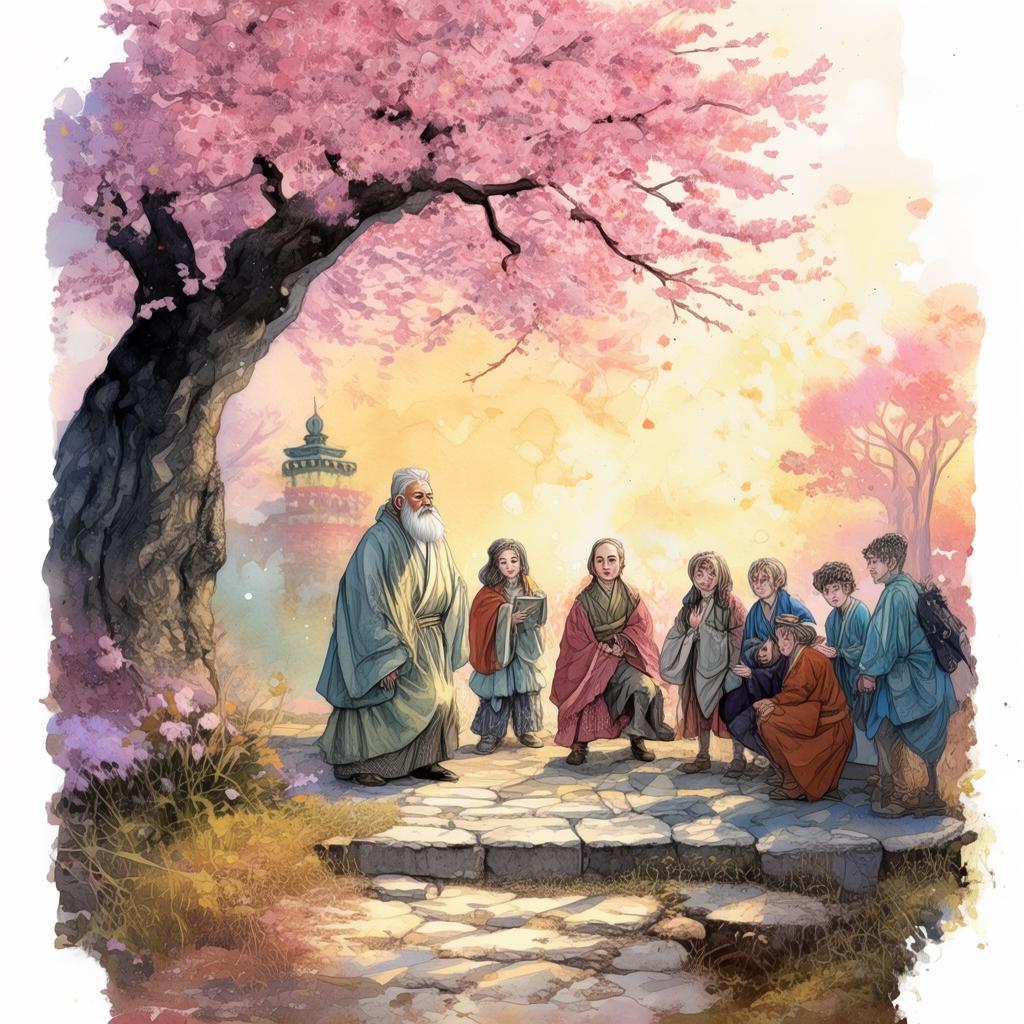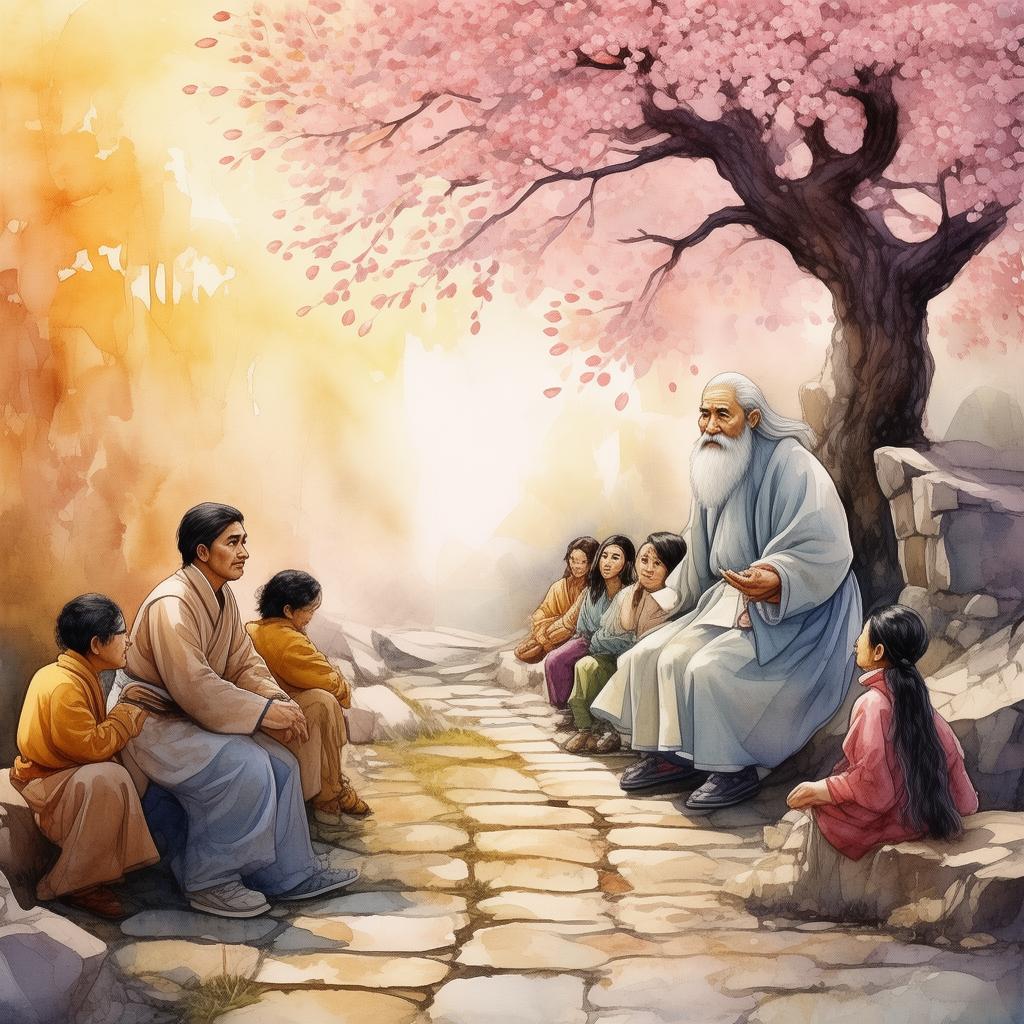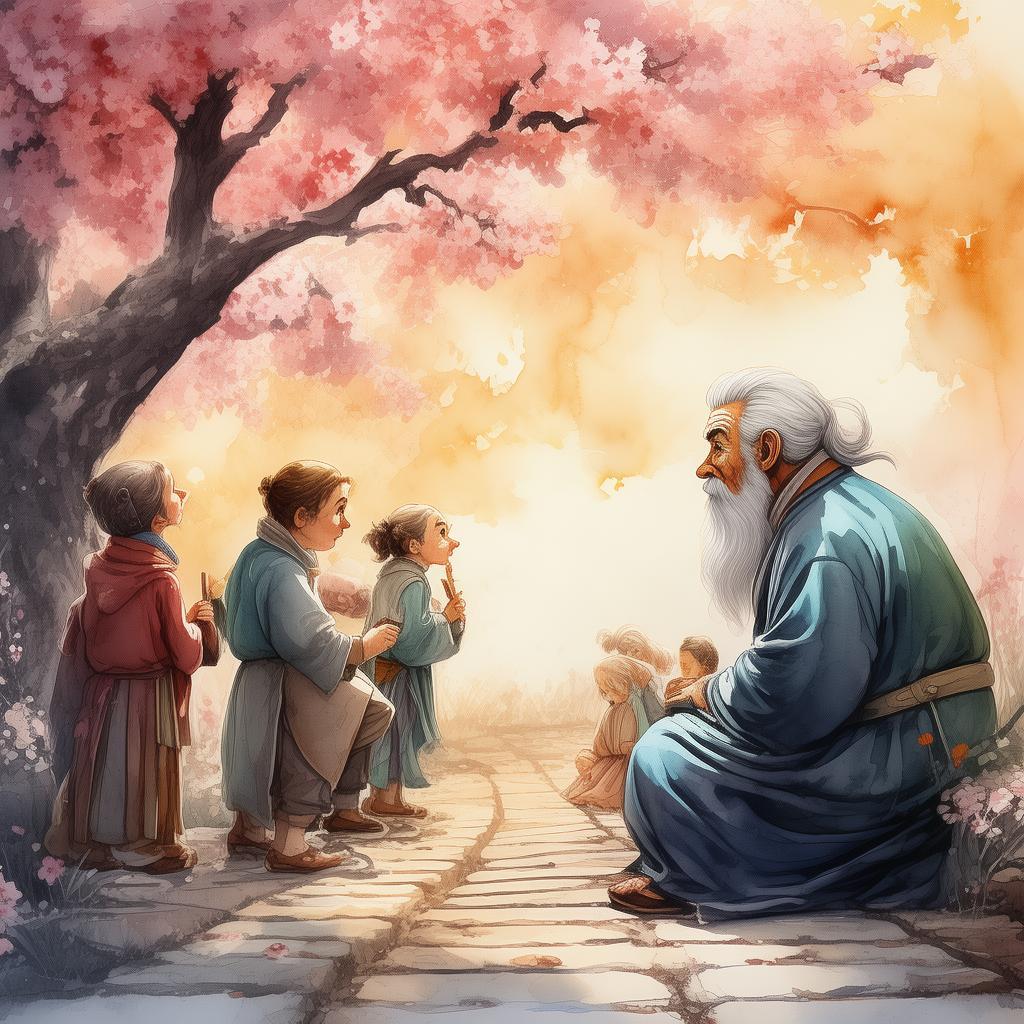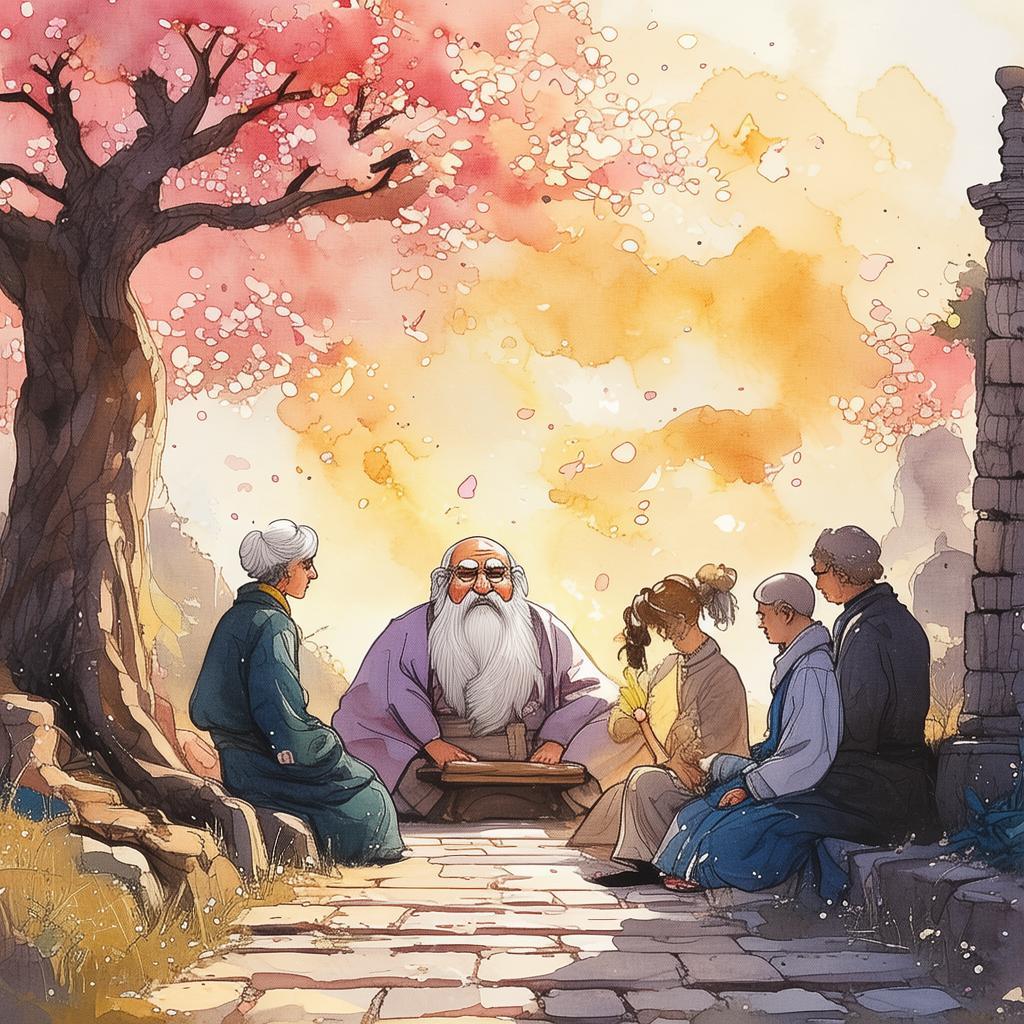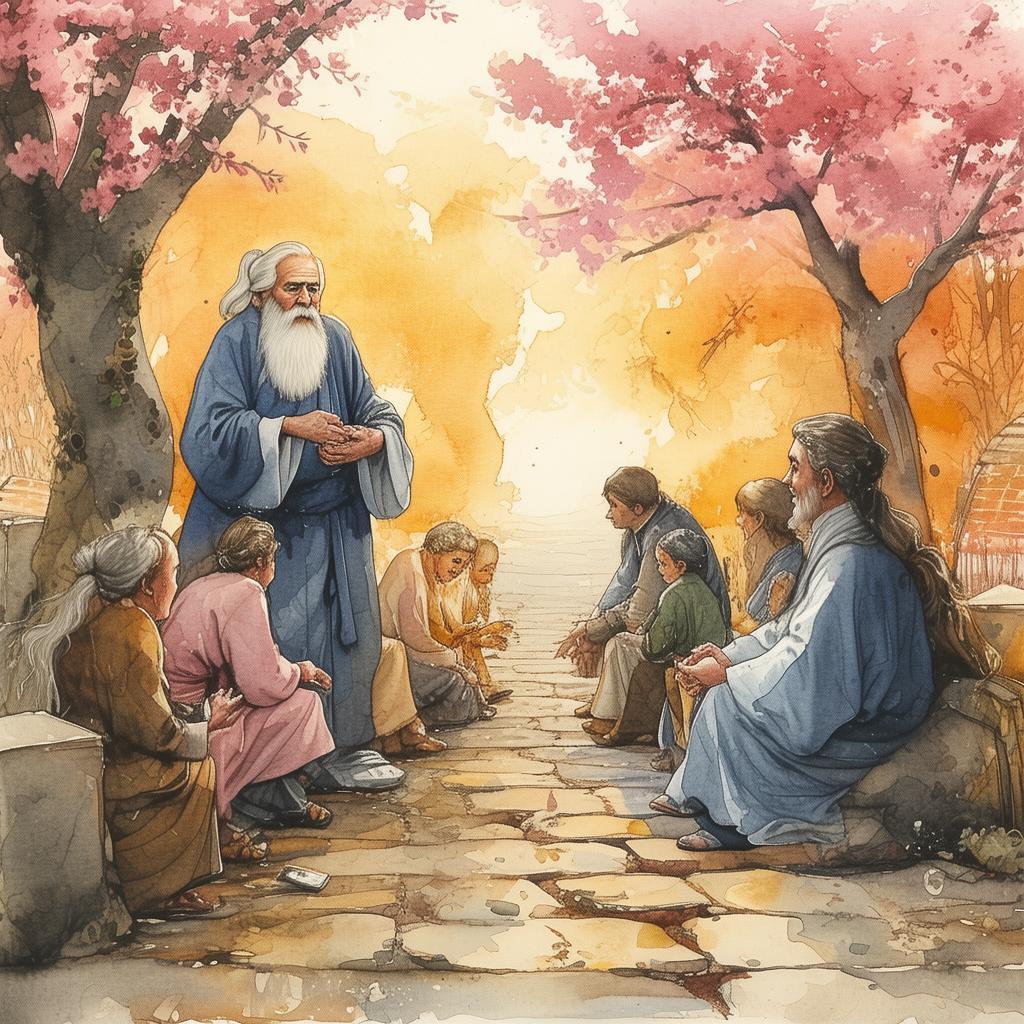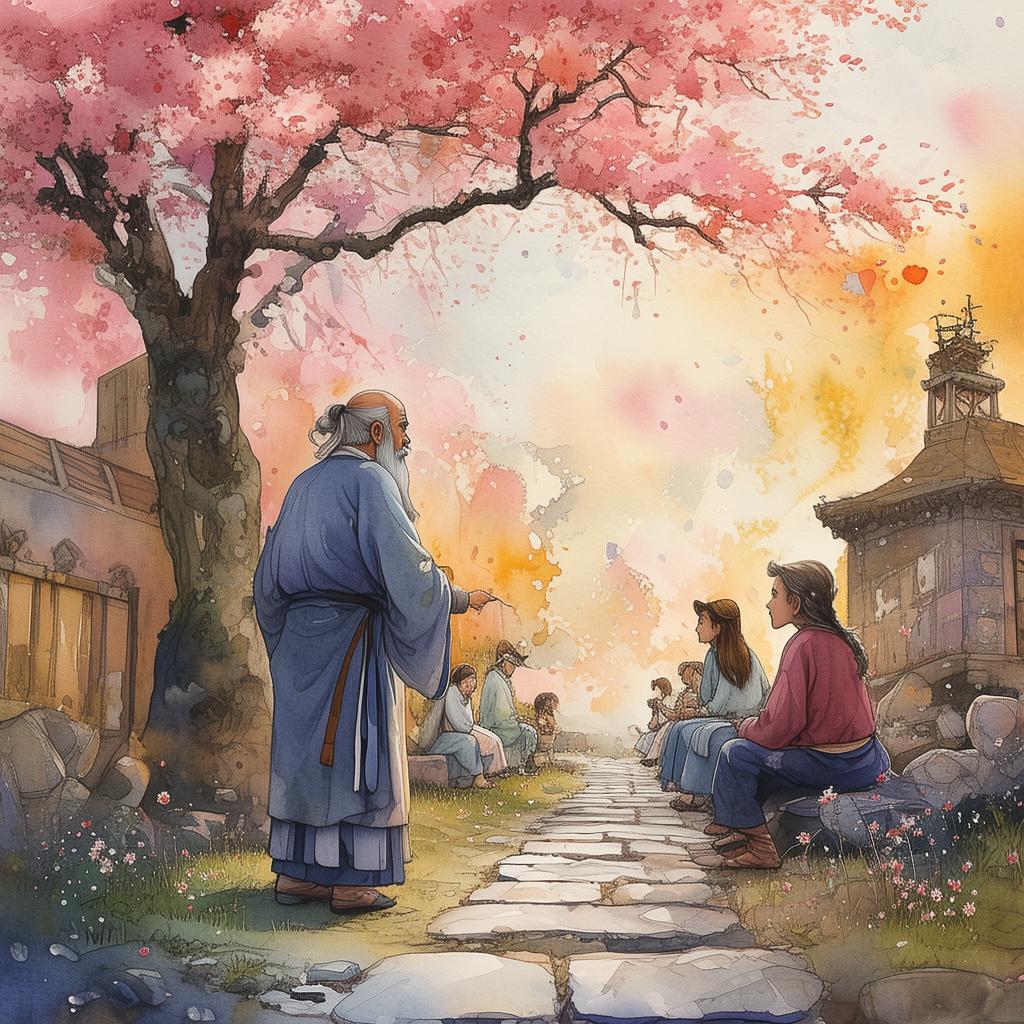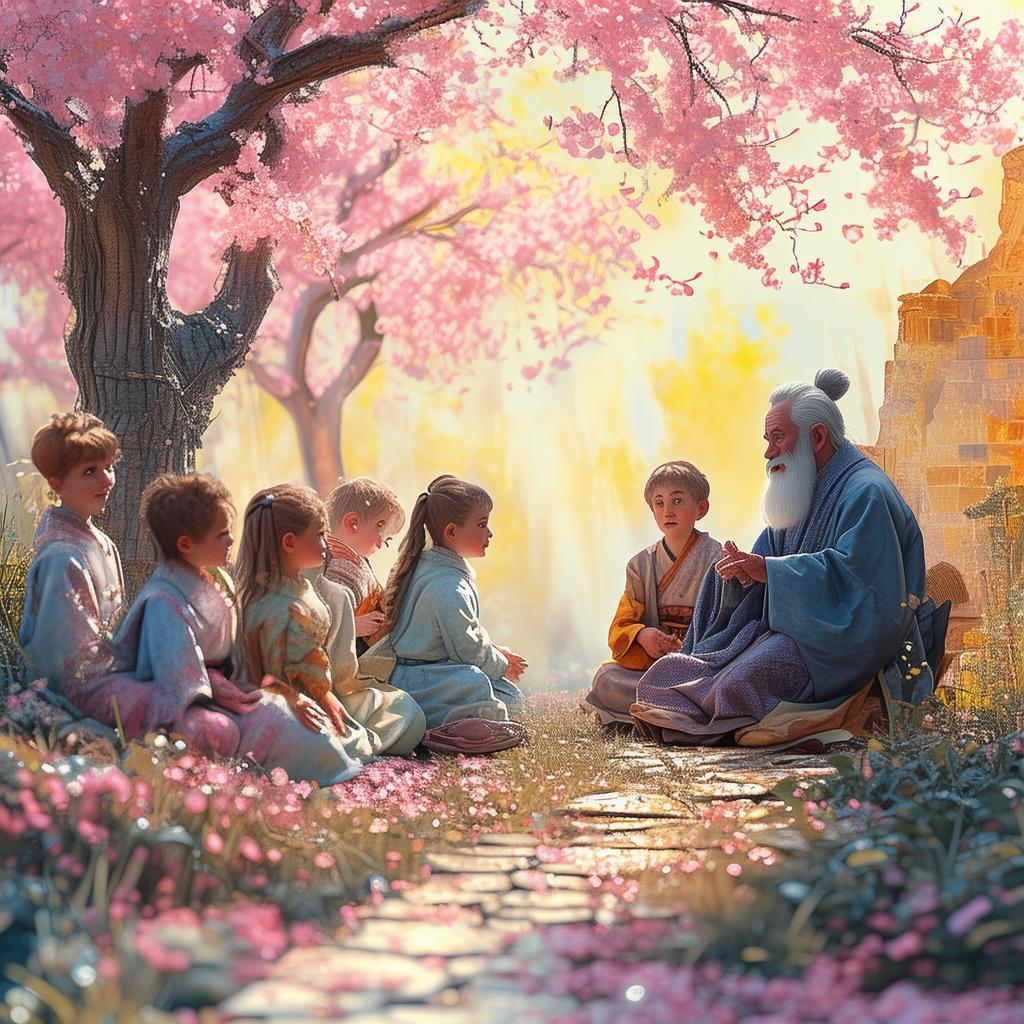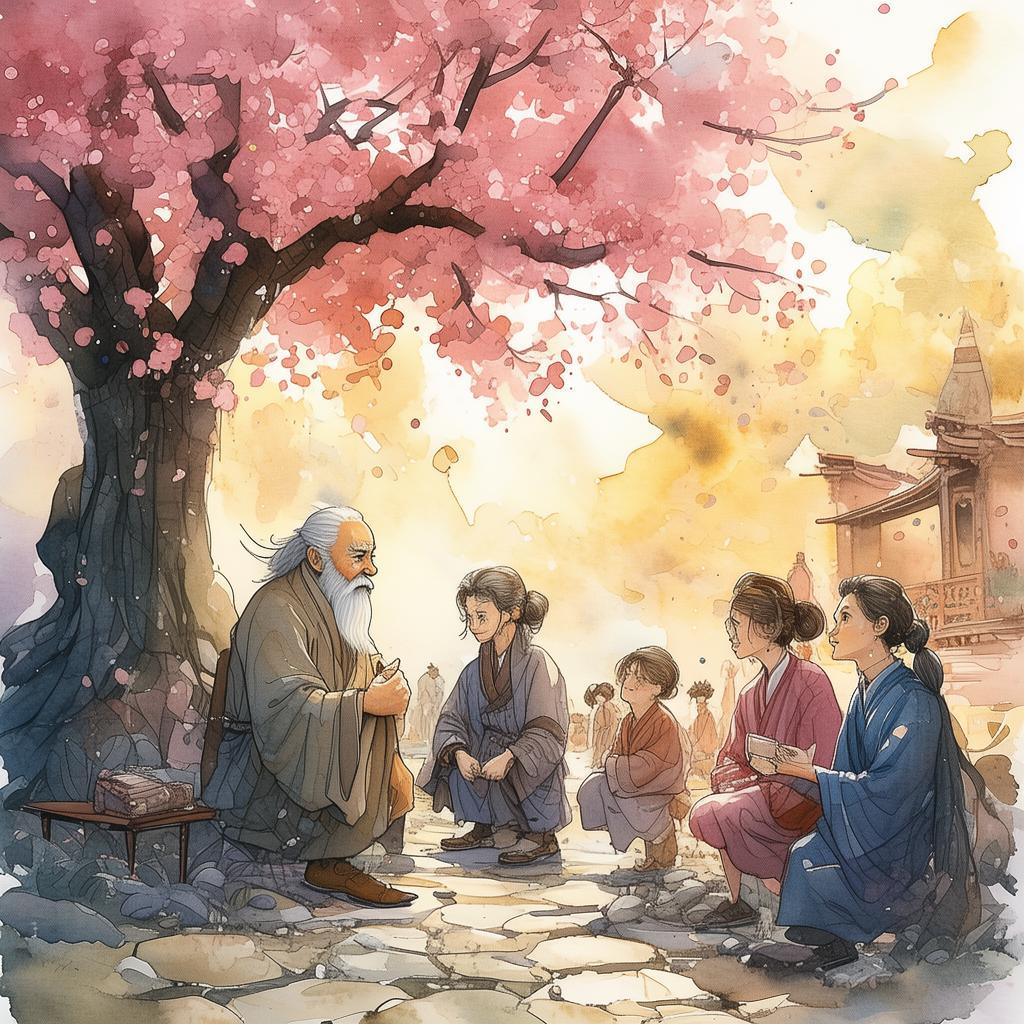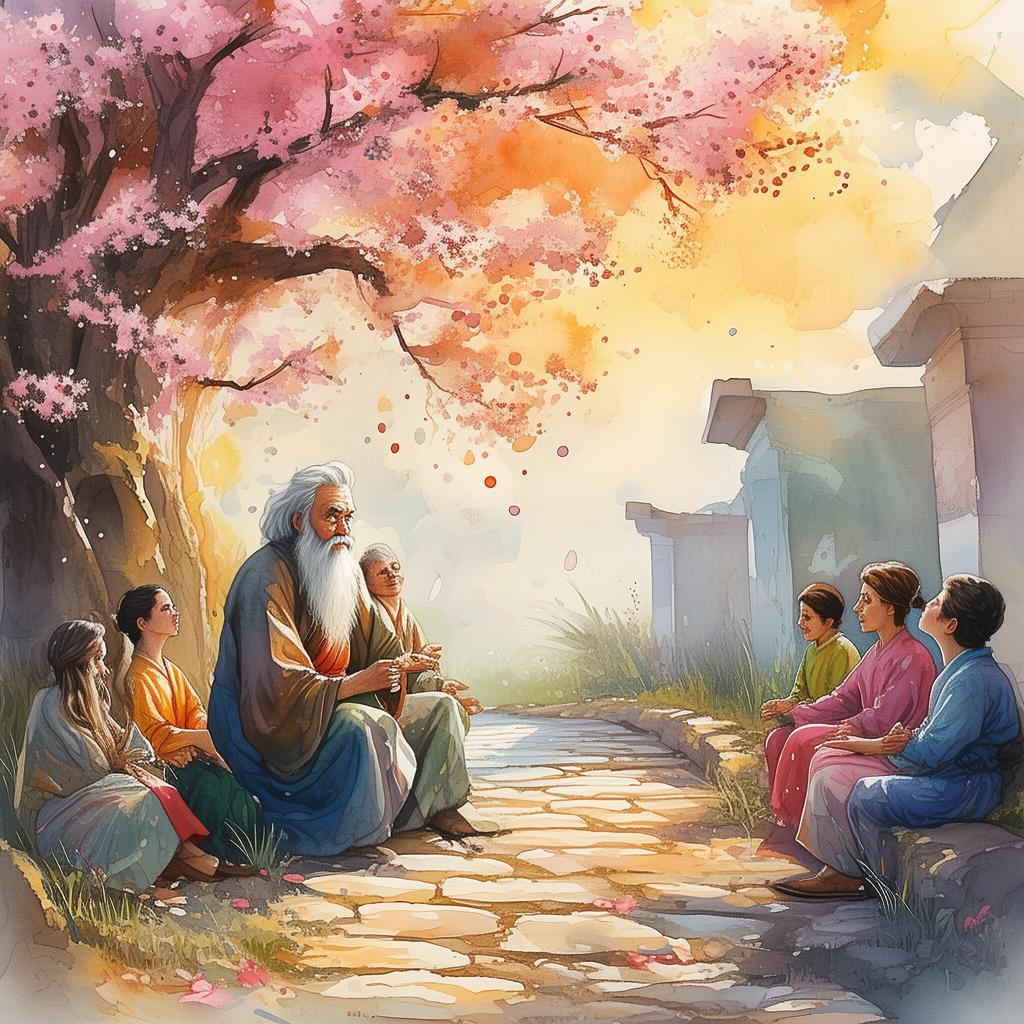The Unraveling of the Silk Road
In the heart of the Great Wall of China, where the winds howled and the snow lay thick, there stood a solitary figure. His name was Ling, a young scribe of great promise, known for his unparalleled knowledge of the ancient proverbs. It was a talent that had won him favor in the court of the Emperor, but it was also a burden that he bore alone. For Ling had discovered a peculiar proverb etched in the annals of ancient wisdom, one that seemed to hint at a hidden truth about the Silk Road, the fabled trade route that connected China with the West.
The proverb read, "The road to the West is paved with silk, but its true treasure lies in the shadows." Intrigued by its cryptic nature, Ling embarked on a journey to unravel its mystery. He knew that the Silk Road was not just a physical path, but a tapestry of stories, secrets, and the delicate dance of trade and diplomacy.
As Ling traveled, the land around him transformed. The verdant rice paddies of his homeland gave way to the vast deserts of the Taklamakan, where the sands whispered tales of old. He passed through bustling markets, where merchants from distant lands bartered for spices, silks, and precious stones. Each stop offered a glimpse into the proverb's hidden meaning, but none revealed its full truth.
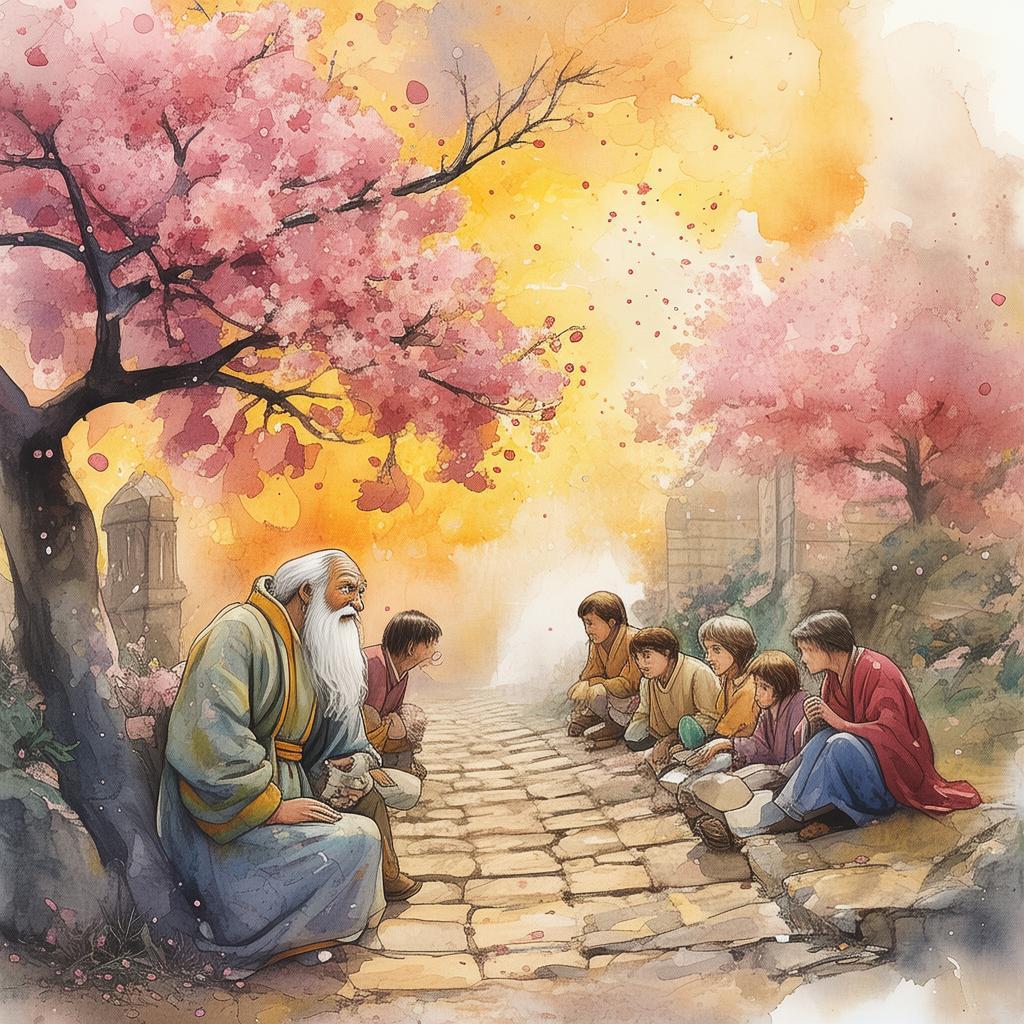
It was during his third stop in the oasis town of Dunhuang that Ling met with his first real challenge. There, in the shadow of the Mogao Caves, he encountered a group of nomads known as the Huns. They were a fearsome people, rumored to have a penchant for deceit and betrayal. Among them was a woman named Aisha, whose eyes held the wisdom of the ages and whose voice carried the promise of ancient secrets.
Ling approached her with a proposition, offering to translate a scroll in exchange for her help in deciphering the proverb. Aisha, intrigued by the young scribe's quest, agreed. But as they journeyed deeper into the desert, Ling began to sense that Aisha was hiding something. Her stories of the Silk Road were filled with tales of treachery and the power of knowledge, and he couldn't shake the feeling that she was the key to the proverb's true meaning.
The path ahead grew increasingly treacherous. They were pursued by a band of robbers who sought to claim the scroll as their own. In a daring escape, Ling and Aisha were forced to split up. Ling, determined to uncover the truth, continued his journey alone, while Aisha vanished into the desert like a wisp of smoke.
Lost and weary, Ling stumbled upon an ancient temple, its walls covered in intricate carvings that mirrored the proverb. There, he found a clue: a riddle that seemed to hint at the existence of a hidden cache of knowledge, the true treasure of the Silk Road. The riddle read, "Find the place where the sun kisses the earth, and you shall find the treasure in the heart of the desert."
With renewed determination, Ling set out to find the place where the sun kissed the earth. After days of searching, he finally reached a vast expanse of sand dunes, where the sun dipped low and the sky turned to fire. There, beneath the desert's relentless gaze, he found the entrance to a hidden cave, its entrance veiled by a veil of silk.
Inside, the cave was filled with ancient scrolls and artifacts, each one a testament to the Silk Road's rich history. At the heart of the cave was a scroll, its pages bound by silver thread. As Ling unrolled it, the words on the scroll revealed the truth behind the proverb. The true treasure of the Silk Road was not the wealth that passed through it, but the knowledge and wisdom that had been exchanged along its length.
The scroll spoke of a hidden library, a repository of ancient knowledge that had been safeguarded by the Huns for centuries. Aisha, it turned out, was the descendant of a long line of Huns who had protected this secret. Her tales of treachery were not merely stories, but warnings of the danger that knowledge posed to those who sought to control it.
Ling realized that his journey was not just about deciphering a proverb, but about understanding the power of knowledge and the responsibility that came with it. With the scroll in hand, he returned to the court of the Emperor, where he shared his findings. The Emperor, grateful for the knowledge that would strengthen his empire, granted Ling a place among the highest ranks of his advisors.
As Ling stood before the Emperor, he whispered the final words of the proverb, "The road to the West is paved with silk, but its true treasure lies in the shadows." The Emperor nodded, understanding the weight of the truth that had been revealed. And so, the young scribe's journey came to an end, but the legacy of the Silk Road lived on, a testament to the power of knowledge and the enduring quest for wisdom.
✨ Original Statement ✨
All articles published on this website (including but not limited to text, images, videos, and other content) are original or authorized for reposting and are protected by relevant laws. Without the explicit written permission of this website, no individual or organization may copy, modify, repost, or use the content for commercial purposes.
If you need to quote or cooperate, please contact this site for authorization. We reserve the right to pursue legal responsibility for any unauthorized use.
Hereby declared.
